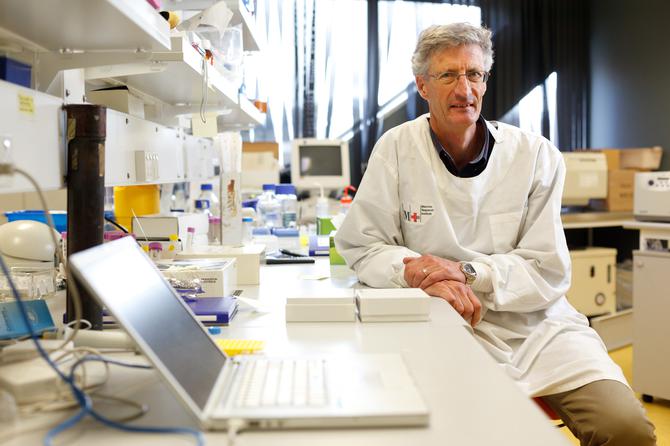An international study involving multiple institutions over six years has shown that immunotherapy can cure Tasmanian devils of the deadly devil facial tumour disease (DFTD).
The research was led by the University of Tasmania’s Menzies Institute for Medical Research with input from the School of Medicine. It also
involved the Walter and Eliza Hall Institute of Medical Research, CSL Ltd, and
the Universities of Sydney, Southampton, Southern Denmark and Cambridge.
Professor Greg Woods, the
leader of the DFTD team at Menzies, said scientists used immunotherapy on
devils with a golf-ball sized tumours and then observed the tumours gradually
shrinking and disappearing over three months.
This is almost a Eureka moment for us because it’s the first time we can say for sure that it was the immunotherapy that was making the tumour shrink, Professor Woods said.

Professor Greg Woods, Menzies Institute for Medical Research.
Building a good understanding of the devil’s immune system, which goes hand in hand with the development of a vaccine, involves years of painstaking laboratory work. The process is incremental, but with each step scientists are closing in on the disease. This breakthrough is the next step on from work published in 2015 that showed that the devil’s immune system was capable of mounting an immune response to DFTD.
Professor Woods said the latest work underlined that the devil’s immune system is its best ally against DFTD.This is an important step along the way to developing a vaccine to protect against DFTD and potentially for immunotherapy to cure devils of established DFTD.
Dr Cesar Tovar is the lead author on the latest paper. He said the
results were very encouraging as they confirmed that it was possible to trigger
the devil’s immune system to recognise and destroy established DFTD tumours.
Our research shows that a DFTD vaccine is feasible. We are focusing our efforts on developing strategies to improve the devils’ response to immunisation.
Professor Woods said the support of the Save the Tasmanian Devil Appeal was critical for ongoing work.
The paper is available online: www.nature.com/articles/srep43827
The research was funded by the Australian Research Council, the National Health and Medical Research Council and the Wellcome Trust, with additional support from the University of Tasmania Foundation through funds raised by the Save the Tasmanian Devil Appeal.
Interested in conducting your own research? Apply now to become a research student.